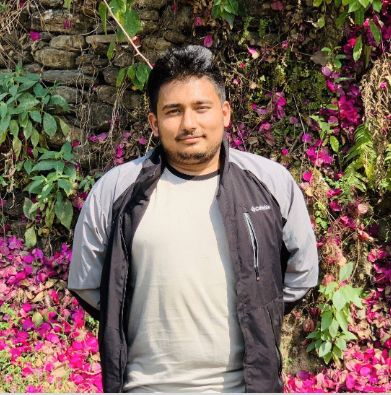
At just 21 years old, Abhishek Adhikari from Manahari, Makwanpur, is redefining the path of rural development by blending traditional farming practices with modern technology. Despite having multiple opportunities to go abroad, Abhishek chose to return to his village with a bigger mission — to revitalize traditional agriculture and empower rural communities through innovation and sustainability.
Tech-Savvy Farmer and Community Leader
Currently pursuing a Bachelor’s degree in Computer Applications (BCA) at the School of Management in Hetauda, Abhishek is not just a student — he is a UI/UX designer and a trainer who has provided free digital training to over 1,500 students. With active involvement in more than five startups, he has been a strong advocate for youth entrepreneurship and self-employment. But what makes him truly inspiring is his commitment to use his technical expertise for the betterment of his own village.
Himalaya Krishi Farm: Tradition Reinvented
Abhishek founded Himalaya Krishi Farm on his grandfather’s land, spanning about 200 gathas (approximately 6.8 acres). Of this, 100 gathas are dedicated to vegetable farming and the other half to fodder (grass) cultivation. The farm is home to over 150 Murrah buffaloes, producing more than 400 liters of milk daily, with fat content above 7%, a rarity in the local market.
What sets this farm apart is its 100% organic operation. Abhishek has developed a 4-kilometer-long pipeline system to transport cow dung and buffalo urine directly to the fields as organic fertilizer. This system has led to a 95% reduction in the use of chemical fertilizers, enhancing soil health, reducing costs, and contributing significantly to environmental conservation.
Challenges in Finance and Banking
However, the journey hasn’t been without its obstacles. “The banks refused to provide loans based on our 10-year-old wooden barns, saying they don’t qualify as valid cattle sheds,” Abhishek shared. The perception of agriculture as a risky sector has made it difficult for farmers to access credit. “It’s now easier and cheaper to get a car loan than an agricultural loan,” he added. This highlights the urgent need for financial reforms and investment facilitation in the agricultural sector.
Impact: Employment for 56 Families and Over NPR 100 Million in Economic Contribution
Himalaya Krishi Farm is more than just a farm — it’s an engine of rural transformation. A study shows that the farm has provided indirect employment to more than 56 families, involving various supply chains, support services, and trade networks. The farm has generated over NPR 100 million in economic value, significantly uplifting the economic and social life of the village.
Through his efforts, Abhishek has inspired many youths to consider agriculture as a viable and respectable profession. His initiative breathes new life into the concept of self-reliance and rural entrepreneurship.
Future Plans: A Center for Research and Training
“I had the chance to go abroad, but I saw a future in the soil of my own country,” says Abhishek. Looking ahead, he envisions turning Himalaya Krishi Farm into a modern agricultural research and training center, where young people will be trained in organic farming, sustainable practices, and agri-tech integration. His platform, www.krishihimalaya.com, is already working to connect farmers directly with consumers, promoting transparency and organic agriculture.
As Abhishek puts it, “Even if you know how to manage manure, what good is it if you can’t produce something valuable from it?” His story is a reminder that in this era, buffalo farming is no longer just livestock management — it’s a service to society. Recognizing and supporting such passionate individuals is essential to build a resilient and prosperous agricultural future.
Abhishek Adhikari is proof that when innovation meets tradition, real change happens — and that change begins at home.